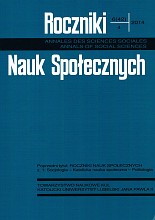The Application of New Institutionalism and the Resource Dependence Theory for Studying Changes in Universities within Europe
The Application of New Institutionalism and the Resource Dependence Theory for Studying Changes in Universities within Europe
Author(s): Magdalena Lipnicka, Jef C. VerhoevenSubject(s): Social Sciences
Published by: Towarzystwo Naukowe KUL & Katolicki Uniwersytet Lubelski Jana Pawła II
Keywords: neo-institutionalism; Resource Dependence Theory; universities; Bologna Process; changes; institutional environment
Summary/Abstract: This article offers the application of new institutionalism and the Resource Dependence Theory in order to study the transformation of higher education in Europe in accordance with the principles of the Bologna Process. At the start of this article, the most important assumptions of both theories are presented. In the next section, the similarities and differences between both theories are discussed. In the concluding part, some observations are made regarding the application of these theories for the study of changes in universities. Universities are understood here as organizations that respond differently to changes in the institutional environment. The combination of these theories allows us to focus on many different factors that determine the responses to change. It is shown that external factors (for instance, government policy and the economic situation) as well as internal factors (for the same university) may have an effect on the processes of change in universities.
Journal: Roczniki Nauk Społecznych
- Issue Year: 42/2014
- Issue No: 4
- Page Range: 7-30
- Page Count: 24

